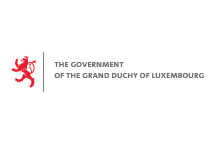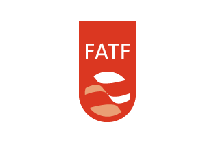Understanding AML Compliance in Luxembourg
How AML Regulations are Handled in Luxembourg
Luxembourg’s AML framework is governed by the Law of 12 November 2004 on the fight against money laundering and terrorist financing (AML/CTF Law) and various sectorial laws. The Commission de Surveillance du Secteur Financier (CSSF) is responsible for ensuring compliance with AML/CTF obligations among supervised entities. This includes implementing a risk-based approach to AML/CTF, requiring full cooperation with the CSSF and the Financial Intelligence Unit (FIU), and adhering to customer due diligence obligations. The CSSF holds broad supervisory and investigatory powers, including issuing administrative sanctions for non-compliance.
For more detailed information on Luxembourg’s AML laws and their application, you can visit the CSSF’s AML/CTF page.


Industries Impacted by AML Regulations

Compliance Requirements for Businesses

Who do AML regulations apply to?
Credit Unions
Financial Services
Fintech
Real Estate
Accounting Firms
Legal
Crypto
Insurance
Mortgages
Community Banks
Tokenization
General Industries

What Business Need for AML Compliance

Implementing an Effective AML Program in Luxembourg


Reporting Requirements in the Luxembourg
In Luxembourg, firms must comply with various reporting requirements to adhere to AML regulations:
For more detailed information on Luxembourg’s AML reporting requirements, you can visit the Commission de Surveillance du Secteur Financier (CSSF)’s AML/CTF section.

AML Regulators in the Luxembourg
Commission de Surveillance du Secteur Financier (CSSF): The CSSF is responsible for ensuring compliance with AML/CFT obligations within the financial sector. It implements a risk-based approach and has broad supervisory and investigatory powers under the AML/CTF Law and various sectorial laws.
Financial Intelligence Unit (FIU): The FIU in Luxembourg plays a crucial role in analyzing and processing Suspicious Transaction Reports (STRs) and works closely with the CSSF and other national and international authorities.

Need up-to-date news about regulations and
enforcement actions?
Resources

Ministry of Justice
AML/CFT Directorate: This department represents Luxembourg in FATF meetings and leads national coordination in combating money laundering and terrorist financing. It contributes to legislative texts and participates in EU working groups related to AML/CFT.

Publications and Guidelines
The Ministry of Justice provides various risk assessments, guidelines, and best practices for AML/CFT. This includes national and vertical risk assessments and guidelines for non-financial sectors.

European and FATF Publications
Reports and guidance on AML/CFT from the Anti-Money Laundering and Counter Terrorist Financing – Ministry of Justice // The Luxembourg GovernmentEuropean Commission and FATF are also valuable resources for understanding broader AML/CFT trends and requirements.
iComplyKYC™ Modules
AML Risk Screening
Comprehensive screening for Adverse Media, PEPs, and Sanctions
Corporate Onboarding
Streamlined, efficient onboarding for legal entities
Document Verification
Robust verification of key documents
Biometrics & Liveness
Advanced biometric and liveness verification for enhanced security
Identity Verification
Comprehensive and reliable identity verification process
How iComply helps Canadian
businesses stay compliant
Compliance
Stay compliant with KYC and AML regulations in 249 jurisdictions, reducing the risk of fines and reputational damage while prioritizing transparency, privacy, and trust for your stakeholders.
Efficiency
Streamline KYC processes and enhance operations while maintaining compliance—be part of building a trusted, secure digital ecosystem empowering people, businesses, and communities.
Customer
Deliver a superior customer experience through frictionless onboarding, clear communication, and enhanced security based on iComply’s core values of trust, accountability, and privacy.
Discover the Power of iComplyKYC™’s software
Ready to take advantage of our complete KYC and AML solution for banking? Contact us today to schedule a demo and learn more about how iComplyKYC™ can help your business stay compliant and secure.









